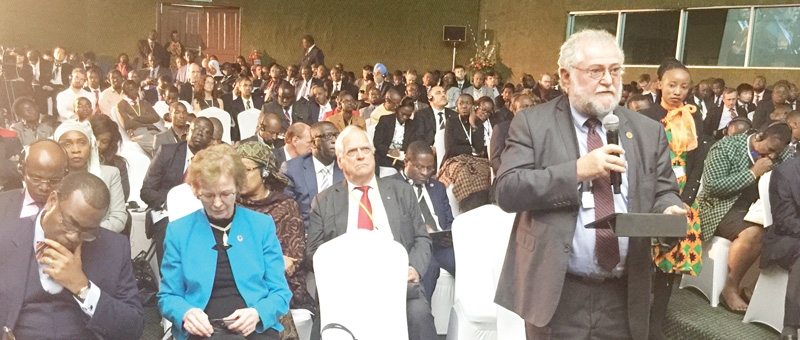
Even foggy debates sometimes lead to clever solutions
The level of debate in Parliament can at best be described as modest. This was evident after the tabling of the budget when the contributions that reflected an understanding of budget issues, could be counted on one hand.
The lack of insight became even more apparent when we entered the vote phase where every minister gets the opportunity to defend cum explain the allocation for his or her particular vote, and the other members of Parliament then have the opportunity to post questions.
As with most of these pre-prepared public statements, it often makes me cringe when I am confronted with the absolute nonsense that an individual in a leadership position, dares to put down on paper. Fortunately, all these hot air statements are on record so if anyone wants to crucify me, first go read the rubbish yourself.
However, with these vote debates, I found that there are more usable information between the lines, than in the actual words. What I detect is that certain references to future events and intentions are nuggets that must be mined from the obscuring layers of fluff. So when the statement from the Minister of Lands and Resettlement crossed my desk, I wanted to relegate it quickly to file 13.
But reading through the statement, I noticed that there are various references to initiatives which I realised will not be finalised in the current financial year. This drew my attention for some of the remarks clearly have immense economic as well as political implications. Glossing over the well-known policy issues and budget figures, it shouted from the pages that the land reform targets will not be met by 2020 given the allocations to fund this exercise. In fact, a brief calculation made me realise, given the amount of money for land reform, the stated targets will not be met in the next fifty years, unless vote 25 gets a substantial and prolonged, inflation-linked facelift.
What does this tell me?
At first I was not sure what to make of the fact that it is on public record and glaringly obvious that Land Reform and Resettlement, is not a priority issue and not a priority ministry. The figures simply speak against all intentions and statements to the contrary.
But later in the same document, hidden in some short remarks, I found the answer to the resettlement conundrum, and, I believe, the long-term plan, that we shall somehow, sometime morph into.
The minister discussed at length the constraints faced by small communal farmers, the current process of land rights registration, and the intention of providing security of tenure. This was still somewhat baffling as it is against the law to allow outright ownership on communal land. Considering the major public outcry during recent weeks over the infringement of communal land rights by individuals, it complicates any future dispensation where tenant farmers will be given freehold titles over their patch of communal land.
But the solution is hinted at in the minister’s report. Fairly close to the end of the report, on the second last page in fact, there is a bombshell which I am still wondering how the government is going to pull this one off.
Stating that the ministry is in the process of reviewing the legal instruments that regulate land use and tenure, it is specifically said that it is the intention of the ministry to consolidate the two acts controlling the reform of commercial farmland and communal land, into one single bill. Voila! There lies the answer. The new bill will be the end of communal land as we know it.
Suddenly the urgency to convince communal farmers to register makes sense. Suddenly the expeditious processing and granting of about 20 000 land rights certificates, makes sense. Meanwhile, there is another 20 000 applications for land rights certificates, 75 000 land rights have been mapped and it is estimated that 230,000 land rights will eventually be registered and conferred.
The solution is clever. Cut up the communal areas according to a regulated and controlled process. Give every applicant, together with his or her family, a title deed to that parcel of land, and presto, you are on your own to eke out a living from subsistence farming, only now the people on the land are no longer government’s problem since they are the owners of their own land, and their own destiny, so to speak.
Land problem solved! Ingenious, I have to say. There is only one question. How long will it take and what happens after that?












































